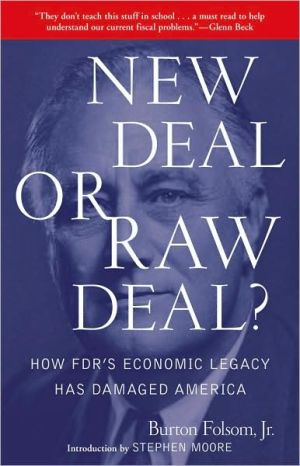Resurrecting Empire: Western Footprints and America's Perilous Path in the Middle East
Begun as the United States moved its armed forces into Iraq, Rashid Khalidi's powerful and thoughtful new book examines the record of Western involvement in the region and analyzes the likely outcome of our most recent Middle East incursions. Drawing on his encyclopedic knowledge of the political and cultural history of the entire region as well as interviews and documents, Khalidi paints a chilling scenario of our present situation and yet offers a tangible alternative that can help us find...
Search in google:
Khalidi (Arab studies, Columbia University) examines the record of Western involvement in the Middle East and analyzes the likely outcome of the most recent US incursions in the region. Arguing that America's leaders are committed to a path of conflict, occupation, and colonial rule that ignores the lessons of history, he offers an alternative that can help the US find a path to peace rather than empire. Annotation ©2004 Book News, Inc., Portland, OR Philip Kennicott - The Washington Post Khalidi's book, "Resurrecting Empire," is part a primer on the history of the region and part an effort to sketch an intellectual battle that, in his view, we lost before the war even began....Khalidi's argument is that the world isn't divided into the lucky experts who get to make policy and resentful experts shut out of the conversation. Rather, it is divided between experts and ignorant political ideologues...."Resurrecting Empire" may remind some readers of other lectures made into books, as it covers and recovers the same ground, but it is based on long experience with the region.
Introduction : the perils of ignoring historyCh. 1The legacy of the Western encounter with the Middle East1Ch. 2America, the West, and democracy in the Middle East37Ch. 3The Middle East : geostrategy and oil74Ch. 4The United States and Palestine118Ch. 5Raising the ghosts of empire152
\ From the PublisherKhalidi has produced an extremely valuable analysis of how and why the PLO made the decisions it did during that fateful summer of 1982. . .His generally objective, lucid and incisive account of PLO decision-making fills a critical void in the literature about the Israeli invasion.--Thomas Friedman, author of From Beirut to Jerusalem and Longitudes and Latitudes\ Praise for Palestinian Identity:\ Winner of the 1997 Albert Hourani Book Award\ "A pathbreaking work of major importance. . . [Khalidi demonstrates] a complete mastery of the relevant literature in Arabic, Hebrew and Western sources."--Edward Said, author of Orientalism\ Praise for Resurrecting Empire:\ "Rashid Khalidi's extraordinary book is enormously relevant for our times, especially in light of America's growing involvement in the Middle East. Khalidi brings first hand knowledge and an extensive historical background to a topic where such insight is needed more than ever."--Joseph Stiglitz, winner of the Nobel Prize, author of The Roaring Nineties\ "If you are wondering why the United States is up to its ears in alligators in Iraq and is widely hated in the Arab world, read this impressive book. Unlike most so-called Middle East experts, Khalidi actually knows a great deal about the that region, which allows him to make a sophisticated and persuasive case that the Bush Administration's plan to re-make the Middle East at the end of a rifle barrel is delusional."--John J. Mearsheimer, R. Wendell Harrison Distinguished Service Professor of Political Science at the University of Chicago\ \ \ \ \ \ The Washington PostKhalidi's book, "Resurrecting Empire," is part a primer on the history of the region and part an effort to sketch an intellectual battle that, in his view, we lost before the war even began....Khalidi's argument is that the world isn't divided into the lucky experts who get to make policy and resentful experts shut out of the conversation. Rather, it is divided between experts and ignorant political ideologues...."Resurrecting Empire" may remind some readers of other lectures made into books, as it covers and recovers the same ground, but it is based on long experience with the region.\ —Philip Kennicott\ \ \ Ivo H. DaalderMr. Khalidi's book will certainly be useful to all those outside the region who are engaged in the difficult yet crucial task of devising ways to help foster change in the Middle East.\ — The New York Times\ \ \ \ \ Foreign AffairsKhalidi dares to use the "e" word in the good, old-fashioned American sense: as a term of reproach. What the United States is doing in the Middle East differs in form from Europe's system of mandates, protectorates, and colonies, but it is empire all the same — mission civilisatrice yesterday, regime change and democratization today. Khalidi, armed with a deep knowledge of the region, demonstrates that the legacy of past empires has conditioned present-day Middle Easterners to resist outside control, direct or indirect; whatever benefits might accrue to the intrusive outsider come only at great cost. Khalidi takes on the usual topics — including the geopolitics of oil and the Israeli-Palestinian conflict — and offers insightful historical parallels to present a powerful case for a U.S. foreign policy more focused on "soft power."\ \ \ \ \ Library JournalThe United States has experienced serious challenges to its foreign policy in the Middle East in recent years. Some of these challenges are the consequence of Washington's post-9/11 policies and its penchant for unilateralism and militarism. Others stem from longterm U.S. foreign policy on a host of issues, including Washington's stance on the Arab-Israeli conflict and its record of supporting dictatorships in the region. In this highly readable, robustly argued, and timely book, Khalidi (Edward Said chair in Arab studies at Columbia Univ.), a well-known scholar of the region explains the genesis and development of American foreign policy in the Middle East. He does an excellent job of putting the contemporary U.S. policy in the region in a historical context, and he demonstrates similarities between the flawed European imperial policies of the past and Washington's current posture in the Middle East. The author also offers a realistic alternative to Washington's perilous ventures in the region. Highly recommended for all public and academic libraries.-Nader Entessar, Spring Hill Coll., Mobile, AL Copyright 2004 Reed Business Information.\ \ \ \ \ Kirkus ReviewsThe "current course of the Bush administration in the Middle East is a doomed one," writes Khalidi (Arab Studies/Columbia Univ.; Palestinian Identity, 1997). There are many historical reasons for being uneasy over the administration's invasion of Iraq, among other actions in the region. But Americans seem to be manifestly allergic to historical facts, with the result, writes Khalidi, that "all too much of the extensive public debate about the relationship between the US and the Middle East, particularly since September 11, 2001, has been taking place in a historical vacuum." If Americans don't have much sense for history, the peoples of the Middle East surely do; they have a long memory for victories, and an even longer one for slights and injuries. Khalidi observes that America was generally well liked in the region until the beginning of the Cold War, when the rhetoric of coming as liberators was replaced by the reality of propping up corrupt dictators and staging coups in the name of containing the Soviet Union; whereas many older Middle Easterners, writes the author, have a memory of living under more or less democratic and constitutional systems of government, younger ones do not, and all share a sense that the US had something to do with their demise. Khalidi explores some of the recent history of the region, offering tantalizing asides that beg for elaboration, as when he notes that Saddam Hussein was once "among [Ba'th] party members colluding with the CIA in 1962 and 1963," pushed into the Soviet camp by American favoritism for the Shah of Iran. In the face of intransigent unilateralism today, Khalidi suggests that the US strike a more balanced position vis-a-vis the Arab powersand Israel and that Iraq come under temporary international administration rather than American military occupation. Useful if discomfiting reading for State Department types-and, perhaps, us all.\ \








